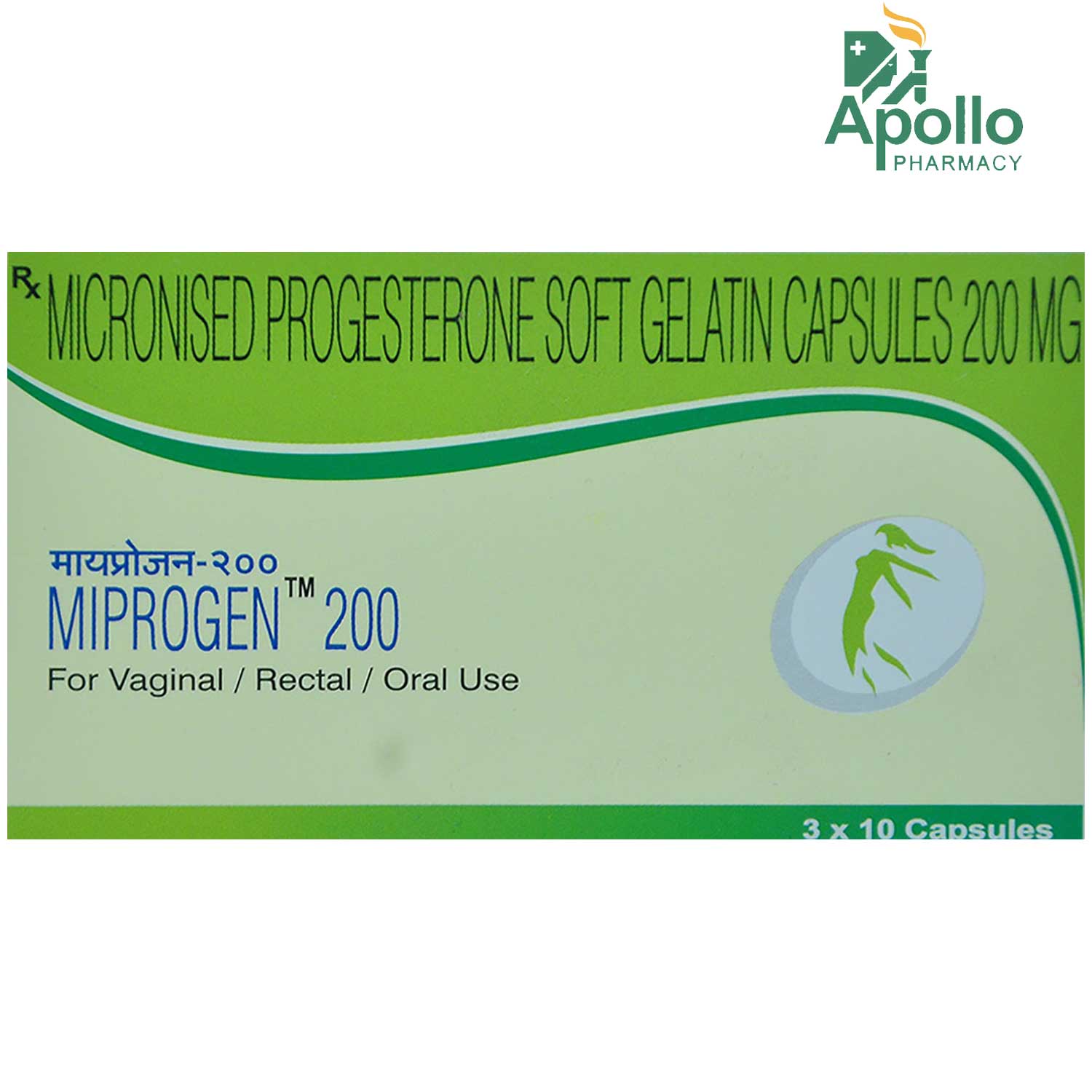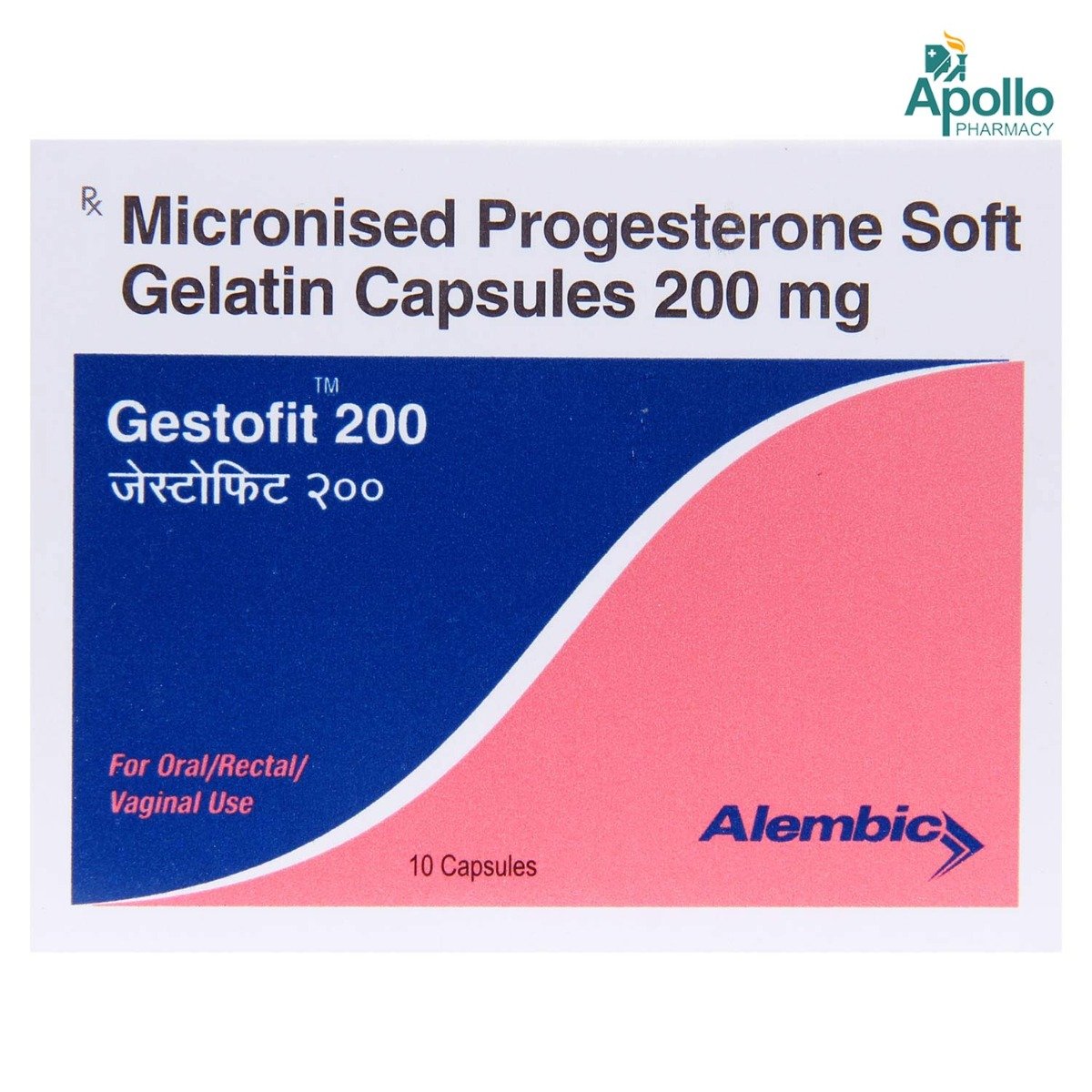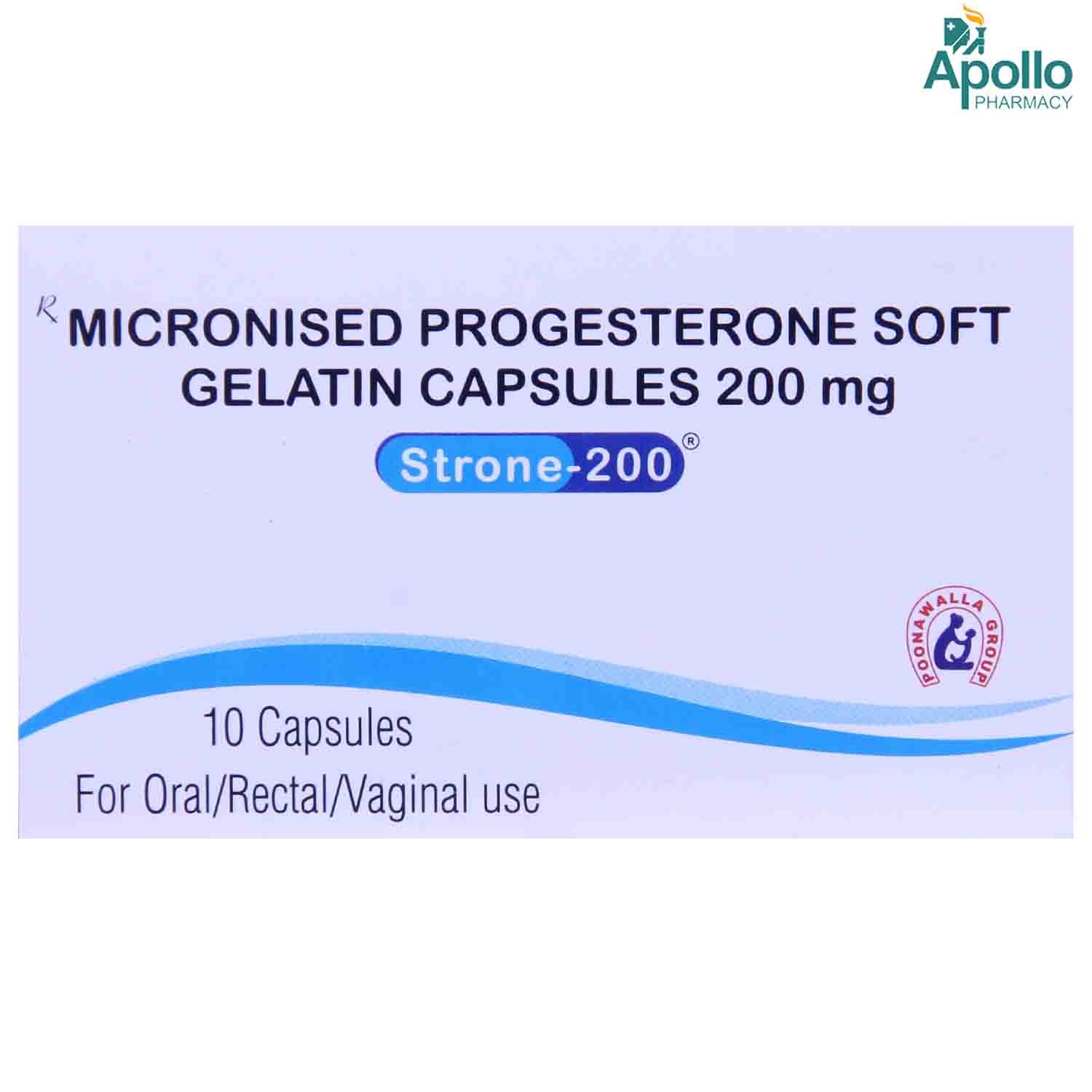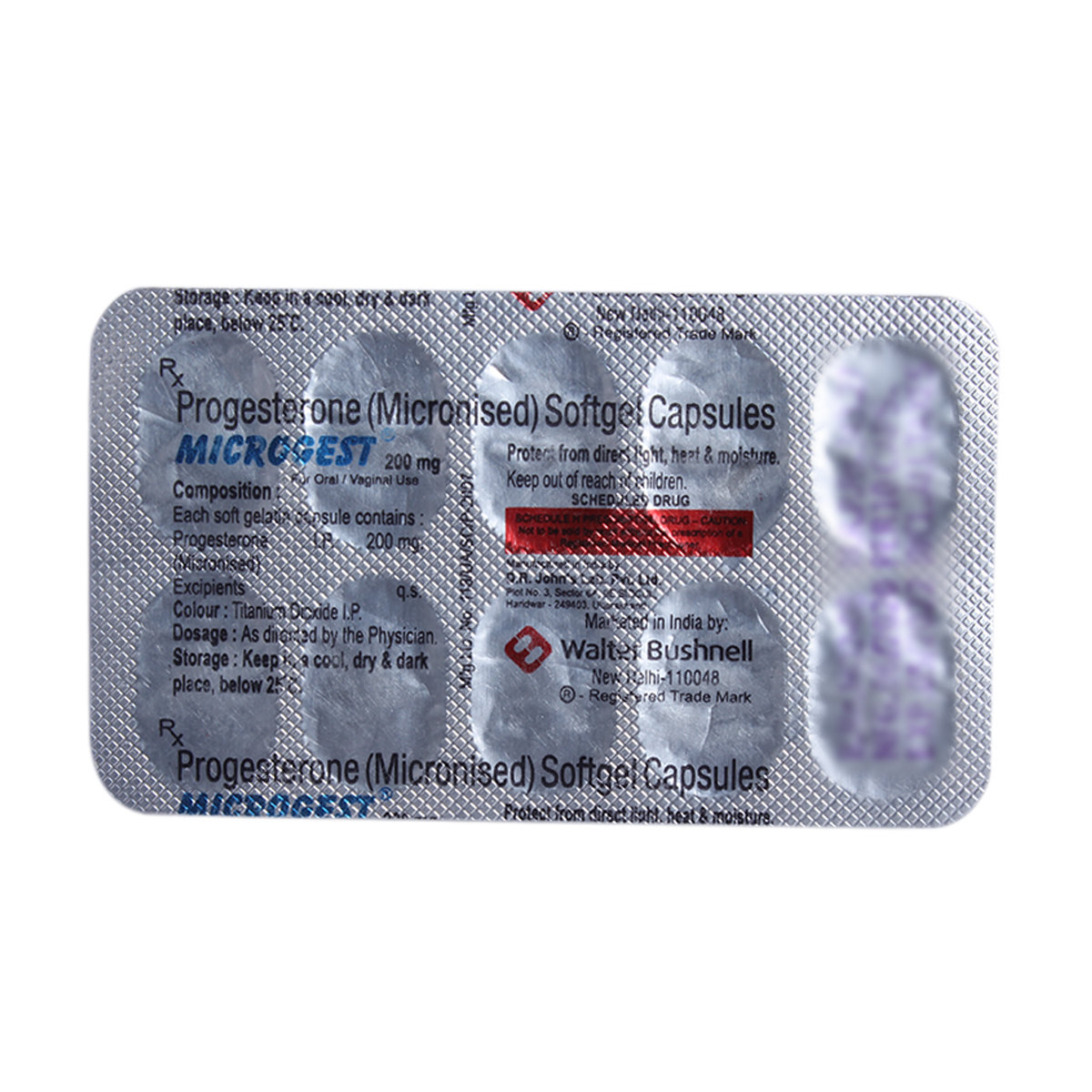IMPLANT 200MG CAPSULE
MRP ₹279
(Inclusive of all Taxes)
₹41.9 Cashback (15%)
Provide Delivery Location
Online payment accepted
 Prescription drug
Prescription drugWhats That
Composition :
Manufacturer/Marketer :
Consume Type :
Expires on or after :
Return Policy :
About IMPLANT 200MG CAPSULE
IMPLANT 200MG CAPSULE belongs to the class of drugs called female hormones primarily used in combination with oestrogen for hormone replacement therapy. Besides this, IMPLANT 200MG CAPSULE also treat amenorrhoea (absence of menstrual periods) and prevent endometrial hyperplasia (thickened uterus lining). Also, it is indicated for maintenance of pregnancy, in threatened abortion and prevention of preterm labour. Hormone replacement therapy is a treatment to relieve menopause symptoms. It replaces hormones that are at a lower level as you approach menopause.
IMPLANT 200MG CAPSULE contains progesterone which works by replacing oestrogen and progesterone hormone levels in the body and providing relief from menopause symptoms.
You are advised to take IMPLANT 200MG CAPSULE for as long as your doctor has prescribed it for you based on your medical condition. In some cases, you may experience dizziness, drowsiness, headache, mood changes, diarrhoea, vaginal discharge, joint pain, hot flashes (sudden feeling of warmth) or constipation. Most of these side effects of IMPLANT 200MG CAPSULE do not require medical attention and gradually resolve over time. However, if the side effects persist or worsen, please consult your doctor.
If you are allergic to soya, IMPLANT 200MG CAPSULE or any other medicines, please tell your doctor. Avoid taking IMPLANT 200MG CAPSULE if you have breast cancer, unexplained vaginal bleeding, blood clots or blood clotting disorder, liver disease, porphyria (a disorder in the formation of red blood pigment) or cerebral haemorrhage (bleeding in the brain). Avoid taking IMPLANT 200MG CAPSULE if you are pregnant as it may harm the unborn baby. You are advised to use effective birth control methods while taking IMPLANT 200MG CAPSULE to prevent pregnancy. However, if you are pregnant, planning for pregnancy or breastfeeding, please consult a doctor before taking IMPLANT 200MG CAPSULE. Drive only if you are alert as IMPLANT 200MG CAPSULE may cause drowsiness or dizziness.
Uses of IMPLANT 200MG CAPSULE
Directions for Use
Key Benefits
IMPLANT 200MG CAPSULE contains Progesterone that is used in combination with oestrogen for hormone replacement therapy. Also, IMPLANT 200MG CAPSULE is used to treat amenorrhoea (absence of menstrual periods due to lack of progesterone) and prevent endometrial hyperplasia (unusually thick lining of the uterus). IMPLANT 200MG CAPSULE replaces oestrogen and progesterone hormone levels in the body and helps in providing relief from menopause symptoms. Also, it is indicated for maintenance of pregnancy, in threatened abortion and prevention of preterm labour.
Storage
- Regular activity including cardio and weightlifting can help in weight loss and breast tissue reduction.
- Limit alcohol intake to lower your chances of gynecomastia and hormonal changes.
- Eat a balanced diet and avoid foods high in estrogen-like compounds.
- Follow your doctor's instructions take medication consistently to reduce breast enlargement and do not stop taking medication on your own.
- Hydrate your body: Drink enough water to prevent dehydration and headaches.
- Calm Your Mind: Deep breathing and meditation can help you relax and relieve stress.
- Rest and Recharge: Sleep for 7-8 hours to reduce headache triggers.
- Take rest: lie down in a quiet, dark environment.
- Cold or warm compresses can help reduce tension.
- Stay Upright: Maintain good posture to keep symptoms from getting worse.
- To treat headaches naturally, try acupuncture or massage therapy.
- Over-the-counter pain relievers include acetaminophen and ibuprofen.
- Prescription Assistance: Speak with your doctor about more substantial drug alternatives.
- Severe Headaches: Seek emergency medical assistance for sudden, severe headaches.
- Frequent Headaches: If you get reoccurring headaches, consult your doctor.
- Headaches with Symptoms: Seek medical attention if your headaches include fever, disorientation, or weakness.
- Mood swings can be managed but cannot be controlled. Therefore, spending time in nature can help you feel light and improve your mood.
- Practice meditation, deep breathing and do regular exercise that can positively affect your mood. Also helps in processing the situation before responding to it.
- Food has direct impact on mood. Therefore, eat foods that are less processed and reduce sugar intake.
- Consult your doctor if the mood swings are uncontrollable or unmanageable.
- Always wear loose-fitting clothes suitable for your activity during hot flashes.
- Include a diet containing fruits like watermelon, grapes, bananas and green leafy vegetables.
- Drink plenty of water and stay hydrated.
- Stay calm and lower your anxiety by practising yoga or meditation.
- Drink water or other clear fluids.
- To prevent worsening of pain, limit intake of tea, coffee, or alcohol.
- Include bland foods like rice, toast, crackers, and rice in your diet.
- Avoid lying down immediately after eating as it may cause indigestion or heartburn.
- Avoid acidic and spicy food as it may cause indigestion.
- Use hot or cold packs on your breasts to help alleviate discomfort.
- Choose a supportive, well-fitting bra, preferably one that has been professionally fitted.
- Practice relaxation techniques to manage stress and anxiety that may accompany severe breast pain.
- Limit or avoid caffeine consumption.
- Eat a low-fat diet and focus on foods rich in complex carbohydrates.
- Rubbing evening primrose oil on your breasts may help balance fatty acids in the cells and reduce pain.
- Keep track of when your breast pain occurs and any other symptoms to determine if the pain is regular or not.
- Vitamin E supplements may help reduce pain for women who experience pain linked to their menstrual cycle.
- Over-the-counter pain relievers like acetaminophen or ibuprofen can provide relief, but be sure to consult your doctor for the correct dosage, as prolonged use may cause side effects.
Drug Warnings
If you are allergic to soya, IMPLANT 200MG CAPSULE or any other medicines, please tell your doctor. Avoid taking IMPLANT 200MG CAPSULE if you have breast cancer, unexplained vaginal bleeding, blood clots or blood clotting disorder, liver disease, porphyria (a disorder in the formation of red blood pigment) or cerebral haemorrhage (bleeding in the brain). Avoid taking IMPLANT 200MG CAPSULE if you are pregnant as it may harm the unborn baby. You are advised to use effective birth control methods while taking IMPLANT 200MG CAPSULE to prevent pregnancy. However, if you are pregnant, planning for pregnancy or breastfeeding, please consult a doctor before taking IMPLANT 200MG CAPSULE. Drive only if you are alert as IMPLANT 200MG CAPSULE may cause drowsiness or dizziness. If you have diabetes, high blood pressure, migraine or severe headaches, gallstones, asthma, fits, systemic lupus erythematosus (an autoimmune disease) or if you ever had depression, inform your doctor before taking IMPLANT 200MG CAPSULE. If you are about to undergo any surgery, please inform your doctor that you are taking IMPLANT 200MG CAPSULE.
Drug-Drug Interactions
Drug-Drug Interactions
Login/Sign Up
When Implant 200mg Capsule is taken with Edoxaban, may increase the blood levels of Edoxaban which increases the risk of serious bleeding complications.
How to manage the interaction:
Although taking Implant 200mg Capsule and edoxaban together can result in an interaction, it can be taken if a doctor has prescribed it. However, if you experience any unusual bleeding or bruising, dizziness, lightheadedness, red or black, tarry stools, coughing up or vomiting fresh or dried blood that resembles coffee grounds, severe headache, and weakness, you should consult a doctor. Do not discontinue any medications without a doctor's advice.
Co-administration of Implant 200mg Capsule with Venetoclax may increase the blood levels of Venetoclax which increases the risk of side effects.
How to manage the interaction:
Although taking Implant 200mg Capsule and Venetoclax together can result in an interaction, it can be taken if a doctor has prescribed it. However, if you experience any symptoms such as fatigue, nausea, vomiting, diarrhea, and infections, it is advised to consult a doctor. Without consulting a doctor, never stop taking any drugs.
Co-administration of Implant 200mg Capsule with Morphine may increase the blood levels and side effects of Morphine.
How to manage the interaction:
Co-administration of Morphine with Implant 200mg Capsule can result in an interaction, but it can be taken if a doctor has advised it. However, if you experience any symptoms like trouble breathing, feeling tired, or having a cough, dizziness, drowsiness, difficulty concentrating, impaired judgment, reaction speed, and motor coordination, make sure to contact a doctor immediately. Do not stop using any medications without consulting a doctor.
Implant 200mg Capsule may interfere with blood glucose control and reduce the effectiveness of tirzepatide and other diabetic medications.
How to manage the interaction:
It is important to tell your doctor about all other medications you use, including vitamins and herbs. Do not stop using any medications without first talking to your doctor. Monitor your blood sugar levels closely.
Drug-Food Interactions
Drug-Food Interactions
Login/Sign Up
Cocoa, Coffee, Dark Chocolate, Energy Drinks With Caffeine, Green Tea, Kola Nut, Tea, Tiramisu
How to manage the interaction:
Caffiene and its products may interact with Implant 200mg Capsule. Limit usage of Caffiene and its products during treatment with Implant 200mg Capsule.
Diet & Lifestyle Advise
- Do regular exercise and physical activity to minimize hot flushes and improve sleep. Aerobics, yoga, and activities like tai chi may help in relaxing the body and mind.
- Try to wear loose clothes before going to bed and sleep in a cool, well-ventilated room. Doing this can prevent symptoms of hot flushes and night sweats. Take minimum sleep of 8 hours.
- Avoid or limit intake of caffeine-containing beverages, alcohol, and spicy food, as these are known triggering agents for hot flushes.
- Try to be stress-free to improve your mood swings due to hormonal fluctuations.
- Quit smoking as it will help to reduce hot flushes and your risk of developing chronic conditions like heart disease, stroke, and cancer.
Side Effects of IMPLANT 200MG CAPSULE
- Dizziness
- Drowsiness
- Headache
- Mood changes
- Diarrhoea
- Vaginal discharge
- Joint pain
- Hot flashes (sudden feeling of warmth)
- Constipation
Habit Forming
Therapeutic Class
All Substitutes & Brand Comparisons
RX
Gest-200mg Softgel Capsule 10's
Bioceuticals Ltd
₹271.5
(₹24.44 per unit)
2% CHEAPERRX
Eugest 200 mg Capsule 10's
Samarth Life Sciences Pvt Ltd
₹299
(₹26.92 per unit)
7% COSTLIERRX
Macgest 200 Capsule 10's
Macleods Pharmaceuticals Ltd
₹305.5
(₹27.5 per unit)
9% COSTLIER
Author Details
We provide you with authentic, trustworthy and relevant information
Drug-Diseases Interactions
Drug-Diseases Interactions
Login/Sign Up
FAQs
Drug-Drug Interactions Checker List
- CARBAMAZEPINE
- PHENYTOIN
- PHENOBARBITAL
- RIFABUTIN
- RIFAMPICIN
- RITONAVIR
- NEVIRAPINE
- NELFINAVIR
- EFAVIRENZ
- DIAZEPAM
- SPIRONOLACTONE
- CICLOSPORIN
- PHENINDIONE
- TIZANIDINE
- TERBINAFINE
- KETOCONAZOLE
- GRISEOFULVIN
Special Advise
If you need to undergo any blood test, please inform the lab technician that you are taking hormone replacement therapy (HRT) as it may affect some test results.
Disease/Condition Glossary
Hormone replacement therapy (HRT): It is a treatment to relieve menopause symptoms. It replaces hormones that are at a lower level as you approach menopause.
Amenorrhoea: It is the absence of menstrual periods in a woman of childbearing potential due to lack of progesterone.
Endometrial hyperplasia: It is a condition where the uterus lining (endometrium) becomes unusually thick due to excessive cells (hyperplasia).

Have a query?
Alcohol
Safe if prescribed
Interaction of IMPLANT 200MG CAPSULE with alcohol is unknown. Please consult a doctor before consuming alcohol while using IMPLANT 200MG CAPSULE.
Pregnancy
Consult your doctor
IMPLANT 200MG CAPSULE supports pregnancy and helps in the maintenance of pregnancy. However, please consult a doctor if you are pregnant before taking IMPLANT 200MG CAPSULE.
Breast Feeding
Consult your doctor
IMPLANT 200MG CAPSULE may be excreted in human milk. Therefore, please consult a doctor if you are breastfeeding.
Driving
Safe if prescribed
IMPLANT 200MG CAPSULE may cause dizziness or drowsiness. Therefore, avoid driving if you feel dizzy or drowsy after taking IMPLANT 200MG CAPSULE.
Liver
Consult your doctor
Please consult a doctor if you have a history of Liver diseases/conditions. The dose may be adjusted by your doctor as required.
Kidney
Consult your doctor
IMPLANT 200MG CAPSULE should be given with caution, especially if you have a history of Kidney diseases/conditions. The dose may be adjusted by your doctor as required.
Children
Safe if prescribed
IMPLANT 200MG CAPSULE is not recommended for children.



















_0.jpg?tr=q-85)
